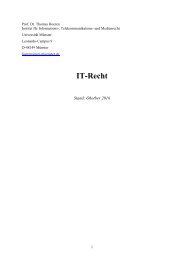3d4yVkKMl
3d4yVkKMl
3d4yVkKMl
Create successful ePaper yourself
Turn your PDF publications into a flip-book with our unique Google optimized e-Paper software.
- 32 -<br />
83. Article VIII expressly contemplates the use of lethal methods, and the Court is of the<br />
view that Australia and New Zealand overstate the legal significance of the recommendatory<br />
resolutions and Guidelines on which they rely. First, many IWC resolutions were adopted without<br />
the support of all States parties to the Convention and, in particular, without the concurrence of<br />
Japan. Thus, such instruments cannot be regarded as subsequent agreement to an interpretation of<br />
Article VIII, nor as subsequent practice establishing an agreement of the parties regarding the<br />
interpretation of the treaty within the meaning of subparagraphs (a) and (b), respectively, of<br />
paragraph (3) of Article 31 of the Vienna Convention on the Law of Treaties.<br />
Secondly, as a matter of substance, the relevant resolutions and Guidelines that have been<br />
approved by consensus call upon States parties to take into account whether research objectives can<br />
practically and scientifically be achieved by using non-lethal research methods, but they do not<br />
establish a requirement that lethal methods be used only when other methods are not available.<br />
The Court however observes that the States parties to the ICRW have a duty to co-operate<br />
with the IWC and the Scientific Committee and thus should give due regard to recommendations<br />
calling for an assessment of the feasibility of non-lethal alternatives. The Court will return to this<br />
point when it considers the Parties’ arguments regarding JARPA II (see paragraph 137).<br />
84. As to the criterion of peer review advanced by Australia, even if peer review of proposals<br />
and results is common practice in the scientific community, it does not follow that a programme<br />
can be said to involve scientific research only if the proposals and the results are subjected to peer<br />
review. The Convention takes a different approach (while certainly not precluding peer review).<br />
Paragraph 30 of the Schedule requires prior review of proposed permits by the Scientific<br />
Committee and the current Guidelines (Annex P) also contemplate Scientific Committee review of<br />
ongoing and completed programmes.<br />
85. Regarding the fourth criterion advanced by Australia, Japan and New Zealand agree with<br />
Australia that scientific research must avoid an adverse effect on whale stocks.<br />
Thus, the Parties and the intervening State appear to be in agreement in respect of this<br />
criterion. In the particular context of JARPA II, however, Australia does not maintain that meeting<br />
the target sample sizes would have an adverse effect on the relevant stocks, so this criterion does<br />
not appear to be of particular significance in this case.<br />
86. Taking into account these observations, the Court is not persuaded that activities must<br />
satisfy the four criteria advanced by Australia in order to constitute “scientific research” in the<br />
context of Article VIII. As formulated by Australia, these criteria appear largely to reflect what



